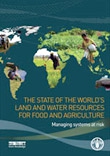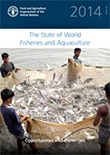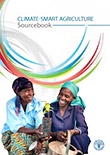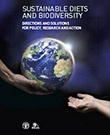Publicaciones

Construyendo una visión común para la agricultura y alimentación sostenibles – Principios y enfoques
La sostenibilidad es un factor medular del nuevo Marco Estratégico de la FAO, y es el foco específico del Objetivo Estratégico 2, consistente en un aumento sostenible del suministro de bienes y servicios de la agricultura, la actividad forestal y la pesca. El presente informe es el fruto de un proceso intensivo de consultas y debates encaminados a elaborar un enfoque común para la labor realizada por la FAO en materia de sostenibilidad. Ese proceso se llevó a cabo en un entorno de colaboración intersectorial basado en las contribuciones de destacados especialistas de la FAO y externos en cultivos, ganadería, actividad forestal, pesca de captura, acuicultura y recursos naturales. El informe proporciona la visión, los principios clave y directrices sobre la manera de avanzar para la transición hacia una alimentación y una agricultura sostenibles. Se basa en la larga experiencia que posee la Organización en la elaboración de conceptos, enfoques e instrumentos de sostenibilidad, y ofrece una plataforma común para una visión del sector de la agricultura y de las sinergias intersectoriales que harán de la agricultura un sector más productivo y sostenible.

This edition of The State of the World’s Land and Water Resources for Food and Agriculture (SOLAW) fills an important thematic gap in FAO's flagship publication series, and presents objective and comprehensive information and analyses on the current state, trends and challenges facing two of the most important agricultural production factors: land and water.
Land and water resources are central to agriculture and rural development, and are intrinsically linked to global challenges of food insecurity and poverty, climate change adaptation and mitigation, as well as degradation and depletion of natural resources that affect the livelihoods of millions of rural people across the world.

In a world where more than 800 million continue to suffer from chronic malnourishment and where the global population is expected to grow by another 2 billion to reach 9.6 billion people by 2050 - with a concentration in coastal urban areas - we must meet the huge challenge of feeding our planet while safeguarding its natural resources for future generations. This new edition of The State of World Fisheries and Aquaculture (SOFIA) highlights the significant role that fisheries and aquaculture plays in eliminating hunger, promoting health and reducing poverty. Never before have people consumed so much fish or depended so greatly on the sector for their well-being. Fish is extremely nutritious - a vital source of protein and essential nutrients, especially for many poorer members of our global community. Fisheries and aquaculture is a source not just of health but also of wealth. Employment in the sector has grown faster than the world's population. The sector provides jobs to tens of millions and supports the livelihoods of hundreds of millions. Fish continues to be one of the most-traded food commodities worldwide. It is especially important for developing countries, sometimes worth half the total value of their traded commodities.

Between now and 2050, the world's population will increase by one-third. Most of these additional 2 billion people will live in developing countries. At the same time, more people will be living in cities. If current income and consumption growth trends continue, FAO estimates that agricultural production will have to increase by 60 percent by 2050 to satisfy the expected demands for food and feed. Agriculture must therefore transform itself if it is to feed a growing global population and provide the basis for economic growth and poverty reduction. Climate change will make this task more difficult under a business-as-usual scenario, due to adverse impacts on agriculture, requiring spiralling adaptation and related costs.

This book presents the current state of thought on the common path of sustainable diets and biodiversity and addresses the linkages among agriculture, health, the environment and food industries.
The alarming pace of biodiversity loss and ecosystem degradation and their negative impact on poverty and health makes a compelling case for re-examining food systems and diets. Thus, there is an urgent need to develop and promote strategies for sustainable diets, emphasizing the positive role of food biodiversity in human nutrition and poverty alleviation.
Sustainable Diets are those diets with low environmental impacts which contribute to food and nutrition security and to healthy life for present and future generations. Sustainable diets are protective and respectful of biodiversity and ecosystems, culturally acceptable, accessible, economically fair and affordable; nutritionally adequate, safe and healthy; while optimizing natural and human resources.
The contents of this book represent the presentations given at the International Scientific Symposium on Biodiversity and Sustainable Diets, organized by FAO and Bioversity International and held at FAO, Rome, from 3 to 5 November 2010.

